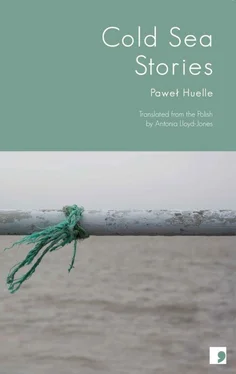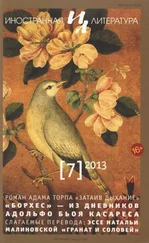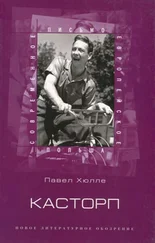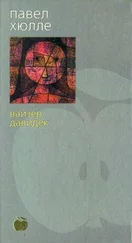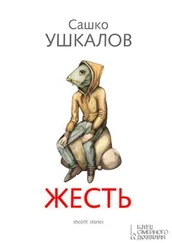Paweł Huelle
COLD SEA STORIES
I
SHE LOVED THIS road. The moss that covered the dunes was as soft as a carpet. Pine trees shot skywards on either side, and tall grass whispered in between them. Whenever the sun was hot for more than a few days, there was a strong scent of juniper in this spot, as heavy as pitch. Large and small bushes of it, some with fantastically twisted manes, grew everywhere here, like elves suspended in motion. Entirely different from over there, by the river, where the path kept sinking into a peat bog or muddy clay, and swarms of mosquitoes rose from the alder and osier leaves. And although it was much further to the sea across the dunes, year after year she took this route. Sometimes she came upon a roe deer. Then she would stop for a while, until the animal turned its moist eyes on her, and quickly vanished into the forest. Whereas the wild rabbits and squirrels entirely ignored her, as if they had never known any harm from man. She never ran into Willman here either. Not like by the river, where he used to graze his cattle. There he would bar her way on the narrow path and always recite the same silly little poem:
Springtime, winter, autumn, summer…
How’s the lassie going to answer?
Then he would produce a pine cone, a pebble or a wilted flower from the pocket of his patched-up trousers, and shove his gift under her nose on an outstretched palm. She had to smile at him, take the present and nod, which meant: ‘Oh, what a lovely day it is, Mr Willman’, and then he would let her pass, so close to him that she could smell the odour of his sweat and his nasty, sour breath. One time he handed her a little mole. The creature was dead. Horrified, she had run off through a hazel copse, all the way to the marshes.
But she wasn’t thinking about Willman now. The forest ended at the edge of the shifting dunes, and from behind the rise she could hear the monotonous roar. This sound always made her feel happy: she quickened her pace, and from the top of the dune, where she could see the sea, she let herself race downwards. Once on the beach, where the waves were licking her feet, she took off her sandals and then, with a quick, decisive movement, her grey dress. Although the water was still cool, she swam for a long time – to the sandbank and back again, as ever.
By the time she emerged onto the shore, the sun was quite high in the sky. In a few minutes her long, loose hair was dry. With her gaze fixed on the horizon, she sat still on the sand. Far away, above the mouth of the river, cormorants were circling. The summer was beginning. But just as last year, not a single boat had sailed out to sea. Nor had a single plough appeared that spring on the polder between the canals. And yet she felt safe here. She had never found any trace of a human presence on the beach. And it was a long time since any horse and cart had come down the road to the village.
Maybe that was why the noise she heard behind her frightened her so much? There was a distinct sound of sand grains crunching, coming ever nearer. She stood up, and turning round abruptly, she caught sight of his tall figure. Only a little later, when he stopped a few paces in front of her, did she remember to shield her breasts. When she screamed, he smiled, pointed at her dress and covered his face with both hands, while muttering a strange, incomprehensible sentence. She ran along the shore, splashing her feet in the water. She was out of breath. She fell onto the cold, wet sand. The stranger was approaching, holding her sandals. She wanted to run away again, and leaped to her feet, but just then he blocked her way and said something that she partly understood: if she didn’t help him, death would finally find him here or somewhere else; it would catch up with him and take him to a dreadful place.
His speech was not like the language of the people from the city. He had a foreign accent, he twisted words, and some of the phrases he used were totally impossible for her to understand. But he no longer inspired fear in her. She made signs to show him that she had been deprived of the gift of speech. She told him to follow her at a safe distance. Not once did she look round behind her. Only next to the van Dorns’ house, which was at the edge of the village, right at the foot of the dunes and the cemetery, did she stop for a moment to check he hadn’t lost her. He was standing hidden behind a pine trunk, afraid to come out onto the road. She turned and showed him that all the houses were empty, even the one next to the chapel, where Willman had spent the winter. He couldn’t, or wouldn’t understand this. He cried that she should give him away at once, for he had no more strength to go on running, and preferred to die here, under the tree, than in the middle of the village, reviled and set upon by dogs. She wasn’t able to explain to him that there weren’t any dogs here any more. And that as long as no lorries appeared, they were safe.
He sat down, leaning against the pine trunk. He had a beautiful, dusky face. She saw tears rolling down his cheeks from under his closed eyelids. His lips kept on whispering the same sentence, in the language that was nothing like the speech of the people from the city. It was strangely soft and sibilant, and inspired trust. She guessed it was a prayer. When he opened his eyes, she made signs to tell him to wait for her patiently. He followed her small, rapid footsteps, but didn’t even get up from the grass. He watched her disappear around the bend, sending up small white clouds of dust on the sandy road.
A chevron of cranes cut across the pure blue sky. Far above the meadows, a hawk was calling. No one appeared on the bend or in the yard of the nearest house. But once the sun had started to vanish behind the dunes he saw her, coming back towards him. In the first instant he didn’t recognise her: she was wearing a long, plain dress, her hair was tied back and covered with a linen cap, and on her feet instead of sandals she had some funny, high-laced boots.
First she laid a small white tablecloth on the grass. Then she took some fritters from her basket, a smoked fish and a bottle of juice. As he ate, ravenously and clumsily, without paying her the least bit of attention, she furtively watched him. He collected every crumb, even off the ground, and sucked them all up. Then he drank. Finally he said something about a hen: it was flying with blood-stained feathers, high, higher and higher. She showed on her fingers that she only had three hens, and that she wouldn’t kill any of them, because in winter there wouldn’t be any fish, or even fritters.
But no, that wasn’t what he meant. Somewhere in the neighbourhood he had crept up to a fisherman’s cottage and hunted down a hen. But he’d been afraid to light a fire, and the raw meat he had eaten had poisoned his stomach. He had lain in a hollow, covered by fern leaves. At dawn, probably on the third day, he had heard the distinct roar of the sea. He didn’t want to die in a pit stinking of excrement, bitten by flies and spiders. He had set off across the moss, soft as a carpet, all the way to the last dune, and there, from the top, he had seen her, just as she was emerging from the water.
The talking exhausted him. He leaned back against the pine trunk again and stared ahead of him, at an indeterminate point. She put the tablecloth and the bottle into the basket again. ‘Follow me,’ she indicated.
But he was afraid the people whose hen he had stolen were sure to recognise him as the thief. She tried to explain to him that the fisherman’s cottage was far away, not in this village. And it looked completely unlike their houses here, built using the axes of the Lord’s carpenter, according to the rules in the Book. But how was she to convince him? He didn’t even glance at the drawing she sketched with a stick in the sand.
Читать дальше
